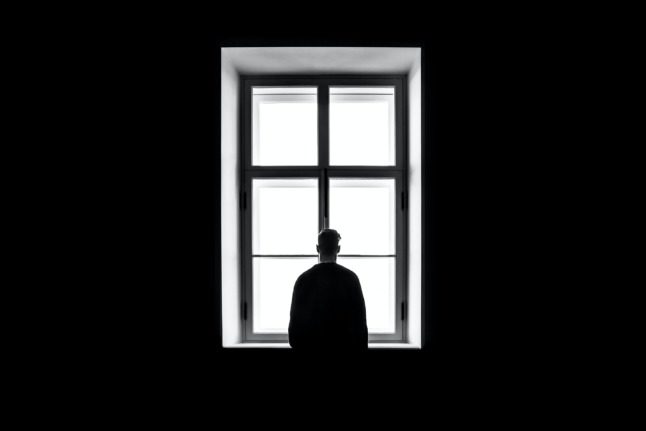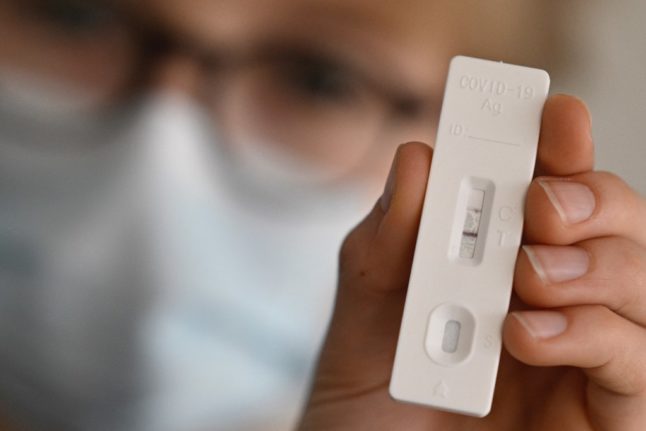The new rules, which came into force on January 3rd, allow a “risk-benefit balance aimed at ensuring the virus is controlled while maintaining socio-economic life”, said health minister Olivier Véran.
What if you test positive?
It depends on your vaccination status.
Fully vaccinated people (see below for the definition of ‘fully vaccinated’), over the age of 12, who test positive only have to isolate for seven days, but can leave quarantine after five days if they show a negative test, Véran said. The test can be either a PCR or antigen test, but not a home test.
Previously anyone who tested positive in France had to isolate for 10 days.
PCR tests were previously required to confirm a diagnosis, but now antigen test and home-tests can be used as well with no need for follow-up PCR test. If you cannot work while you are in self-isolation, you can apply for an arrêt de travail (ensuring you will still be paid) with either a PCR or antigen test result, but not a home test.
Those in this age group who are not fully vaccinated must complete a 10-day quarantine, according to the same rules, but shortened to seven should they present a negative antigen or PCR test at that stage.
These rules apply regardless of the coronavirus variant they were infected with – a longer quarantine period for those who tested positive for the Omicron variant has been scrapped.
If you use the Tous Anti Covid app, you can upload a positive test – either PCR or antigen – to the app to notify those you have been in contact with.
What about contact cases?
There will be no quarantine for fully inoculated (this includes the booster dose, if applicable) individuals over the age of 12 who have a close contact test positive.
However, people must respect protective measures and “undergo regular testing”, Véran said.
They need to take a rapid antigen or PCR test “on the day you learn that you are a contact case”, followed by a self-test on the second and fourth days.
“If you take proof of your first test on day 0 to a pharmacy, you will receive the necessary home tests free of charge,” Veran added.
Until now, those who were a close contact of someone who tested positive had to quarantine for a week.
But if you’re unvaccinated, the seven-day quarantine remains and you should test at day zero and again on day seven. A negative test is required to leave isolation after that period.
And again, the rules apply whatever strain of coronavirus someone has caught.
What about children under the age of 12?
The self-isolation rules for children under the age of 12 do not change according to vaccination status – vaccination for under 12s has only been available since late December, so the vast majority of under 12s are not yet fully vaccinated.
If they test positive, they must take a PCR or antigen test five days later. They can leave isolation if this test is negative and they have been asymptomatic for 48 hours.
If they are a contact case, they must take a PCR or antigen test immediately, followed by a self-test on Days 2 and 4 (following the moment they discovered that they were a contact case). If these tests are all negative, their parents or guardians must sign an declaration stating that the tests were indeed completed. The children can then return to school.
Fully vaccinated
The definition of ‘fully vaccinated’ can now include the booster shot.
If you have had two doses of the Covid vaccine (or one dose if you previously had Covid) more than seven months ago and have not had a booster shot, you will no longer be considered ‘fully vaccinated’ for quarantine purposes. The seven-month limit is set to be lowered to five next month.
If you caught Covid after having two doses, you will not be able to have a booster for five months, but can use your positive test result together with the two vaccine doses to show that you are considered fully vaccinated.
Put more simply – if you have a working health pass on the TousAntiCovid app, you are considered fully vaccinated by the French government.
READ MORE:



 Please whitelist us to continue reading.
Please whitelist us to continue reading.
What about visitors to England that have returned home and been told to self isolate for ten days even though they are fully vaccinated? Can we go out after 7 days?
According to the website diplomatie.gouv.fr the 10 day isolation when returning from the UK is lifted if you have a negative test 48 hours after arriving in France – according to the website that is still valid as of today (Jan. 2nd)
Hi, the rules for travel are different to those who have tested positive/are contact cases. You can find the travel latest here https://www.thelocal.fr/20211229/reader-question-what-do-i-need-to-do-when-i-return-to-france-from-uk/
Fully vaccinated people (see below for the definition of ‘fully vaccinated’), over the age of 12, who test positive will only have to isolate for seven days, but can leave quarantine after five days if they show a negative test, Véran said. The test can be either a PCR or antigen test, but not a home test.
So if you can’t go out how do you get a PCR test?